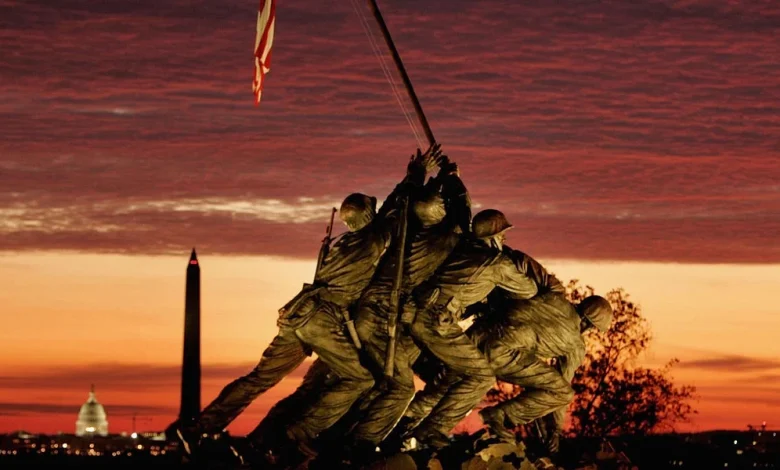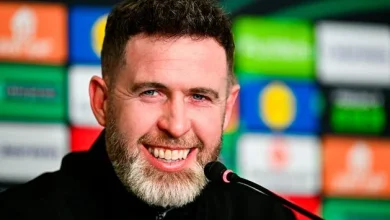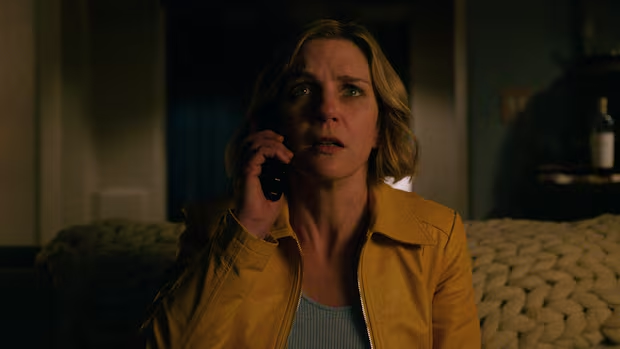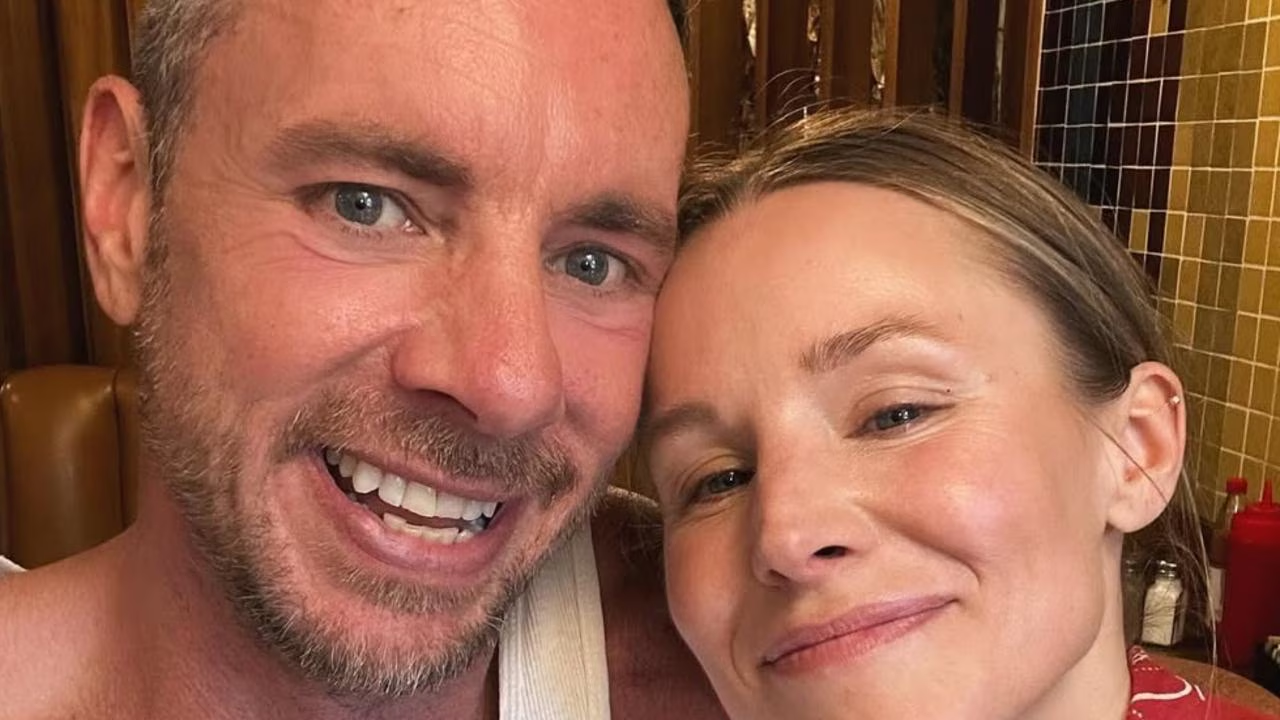Who We Choose to Be: A Reflection on the Character of Veterans

(Photo by Mark Wilson/Getty Images)
SO MANY SPEECHES AND ESSAYS about Veterans Day lean on familiar language—thank you for your service; freedom isn’t free; home of the free, because of the brave—that they tend to flatten into tidy clichés of what it means to be an American veteran. I want to offer a different kind of reflection from an old veteran, one that doesn’t reduce service to a slogan but helps show its lived reality.
Let’s start by taking a step back and talking about the American character. We’re always debating who we are as a nation—most pointedly when, after some act of political violence or botched policy decision, we hear two refrains from media commentators and our fellow citizens. One is: “This isn’t who we are.” The other is: “This is exactly who we are, and who we’ve always been.”
Both sentiments capture something real—and both miss the fuller picture. What we see in our worst moments is not who we have always been. But it is what happens when we forget who we aspire to be. Our character, our identity, is not inherited; like our democracy, it must be renewed. The story of America has never been one of perfection—it has been one of persistence, self-correction, and conscience. Who we are is not fixed. But who we become is a choice.
Veterans understand that better than most, in part because military service teaches more than just tactics, rifle marksmanship, how to march, and the required discipline. It teaches that character is forged in action—in responsibility to others, in exhibiting and living our values, in truth-telling, in choosing the harder right over the easier wrong. Military service, in unique and nuanced ways, teaches that the health of a republic depends on citizens willing to recite an oath, show up, work together, and defend the institutions that safeguard our liberty. These lessons are both taught explicitly and are instilled by the very nature of military service.
Not that all veterans think alike. Beyond these shared commitments, veterans tend to think differently about citizenship or politics.
When we talk about veterans, whom do you picture? What sort of person? We should resist the caricatures. Don’t think of the loud “vet bro” who boasts about missions he never went on. Or the person who wears camouflage to the grocery store or sports tactical gear with flags on their shirts as a kind of identity costume. All that has become an oddly widespread feature of our era and the post-1970s volunteer military. And our time with a professional volunteer army is much different than the draft Army I entered so many years ago. Yet, in a nation where less than 1 percent of our citizens volunteer to serve in uniform, it seems more people than ever are wearing the clothing of military culture. Symbols of service have become fashion statements, even political markers—usually louder than the voices of those who actually served. There’s nothing wrong with pride in country. But service isn’t a look. It’s not a brand. It is a choice—a deliberate act of belonging.
Those who enter the service do so for a variety of reasons—for the adventure, to get away from home, for the pride in wearing a uniform, or maybe because their uncle or their grandfather told them interesting stories—but few of those who now step forward do it for applause or recognition. Most of the thousands I spoke with during my time in uniform cited as one of their reasons for joining that they felt compelled to serve something larger than themselves. These young men and women are a diverse group because they represent every corner of our country—small towns, large cities, rural areas, the Bible Belt and religious deserts alike.
And even when their similarities came to the fore—when they put on the uniform of their particular service—each has a story to tell.
During the earliest months of the Iraq War, there was a young Army lieutenant in our unit in Baghdad, a Harvard graduate who volunteered after 9/11. He had a job offer from a Wall Street firm, a beautiful girlfriend looking to settle down and have a family, the new dawn and a life of ease. But after the terrorist attacks he enlisted, was told early in basic training by his drill sergeant that he should become an officer, and then he immediately after receiving a commission went to war and led soldiers through the dust and danger of combat. He told me he made all these tough choices because he needed to “do something that mattered, right now.” His meaning came not from prestige, but from a sense of responsibility and selfless service.
On another occasion, while walking with a patrol in Tikrit, a group of soldiers told me—half joking, half with pride—that a member of their squad had once been a successful male model. When I met that good-looking soldier and asked him why he traded a lucrative career for the Army, he shrugged. “I wanted a family. I didn’t have one. Here, I do, because these guys are my brothers. And the Army values make sense to me.” He didn’t enlist for excitement or résumé burnish. He joined because he wanted purpose—and he found it.
These stories are unusual in that these are not the profiles of most soldiers—but they are representative of what our veterans want from a life of meaning. That’s the point. Veterans know what military service actually is: a gathering of citizens who choose identity not by birthplace or status but by commitment. They learn new skills, they find themselves, they form teams, they place the mission first, and they put the person next to them, their “battle buddies,” above themselves when crisis finds them. That is what binds veterans—not bravado, not politics, not uniform. Choice and commitment.
I SPENT MOST OF MY thirty-eight years in uniform with soldiers—armor crews, cavalry troops, medics, military intelligence analysts, logisticians, and all the other quiet professionals from so many different military tribes who make an army function. But my time in combat and command also brought me into close partnership with sailors, airmen, Marines, and Coast Guardsmen. What struck me was not how different their uniforms were, or how their military culture and practices were unique, but how quickly the values they lived blended so easily together with others wearing the uniform. All of these men and women shared an instinct toward contributing, a devotion to one another and their duty, and a humility about the danger around them.
I think often of stories I wrote about in a book I’ve recently finished, If I Don’t Return. The platoon sergeant who lost one of his soldiers to an IED and who became passionate about never losing another; the young sergeant who took the place of one of his ill privates on a dangerous patrol; the Marine I met at Landstuhl hospital in Germany who had lost both legs but was worried only about the other members of his platoon; the medic who had written down the names of every trooper she had treated in a little green notebook she kept in her breast pocket because she wanted to check up on them when she got back from deployment. None of those women or men saw themselves as extraordinary. They would have said they were simply doing their job. But service asks a great deal of people, and my experience is that each veteran gives more than most of the country will ever see.
Speaking of unseen sacrifice: The families of service members aren’t called “veterans,” but they should wear that moniker. Because they serve, too. I remember a spouse who carried her household and her six children while caring for her dying father, all while her husband was deployed for fifteen months. And the mother of a high schooler who recruited a soldier from another unit to take her daughter to a father-daughter dance. And a mother who had their child count down to when dad would return by picking M&M’s from a jar each day; when told her husband had been extended for three more months, she dutifully dumped another bag of candy in that jar. No fanfare. No headlines. Just steadfastness. Those acts of love, sacrifice, and endurance also define veterans.
It is easy to think of military service in terms of battles, medals, or rank. But those are footnotes. The heart of service is people learning to count on one another, and to be counted on in return. That covenant becomes the quiet thread that binds a culture—and a democracy. Good culture knows that citizenship is not passive. It requires effort, honesty, and the willingness to be accountable to something beyond comfort or ego. Veterans do not have a monopoly on those virtues, but they sure have lived them intensely, sometimes at great cost. That experience makes them witnesses to a truth our country needs to understand: Service is not a transaction. It is a way of living.
If there is urgency in this moment of deciding who we really are as a people, it may be because Americans increasingly see politics as combat and their fellow citizens as enemies. Too many believe that freedom means doing whatever you want, rather than accepting responsibility for one another. Some treat patriotic symbols as props rather than promises.
Yet the veterans I have known offer a different example. They learn that our nation’s strength is the trust we build in small, unglamorous ways. That trust is garnered by telling the truth, even when it hurts. That it is right to stand strong by the people you serve with—even when no one is watching. That there is a sense of pride in showing up for your community—not because it benefits you, but because it is required for a healthy society.
Which brings me back to those arguments about “who we are” as a nation. When I hear that back-and-forth, I think of those I served alongside. I think of the Harvard lieutenant who chose duty over ambition. The former male model in that one squad who found a family in Army values. The platoon sergeant who carried grief in silence. The spouse who held her family together across oceans. The medic who remembered every face. That is who we really are—when we choose to be.
Don’t get me wrong, I know none of the soldiers I served with is perfect. (Neither am I.) But they are, by and large, hopeful, determined, and unselfish. They remind me that the question is not whether “this is who we are,” but whether we have the courage to live up to who we are meant to be.
That is my quiet lesson of Veterans Day. Our country endures not because of what we possess, but because of what we believe—and how we act when belief demands sacrifice in serving each other. The men and women who call themselves veterans remind me that a republic survives only when its citizens choose responsibility over indifference, sacrifice over convenience, community over isolation. They remind me that We the people is not a slogan. It is a commitment.
And those veterans also remind me that the question of who we are as Americans will never be settled. It is chosen—again and again, including by those willing to serve, either in or out of uniform.





